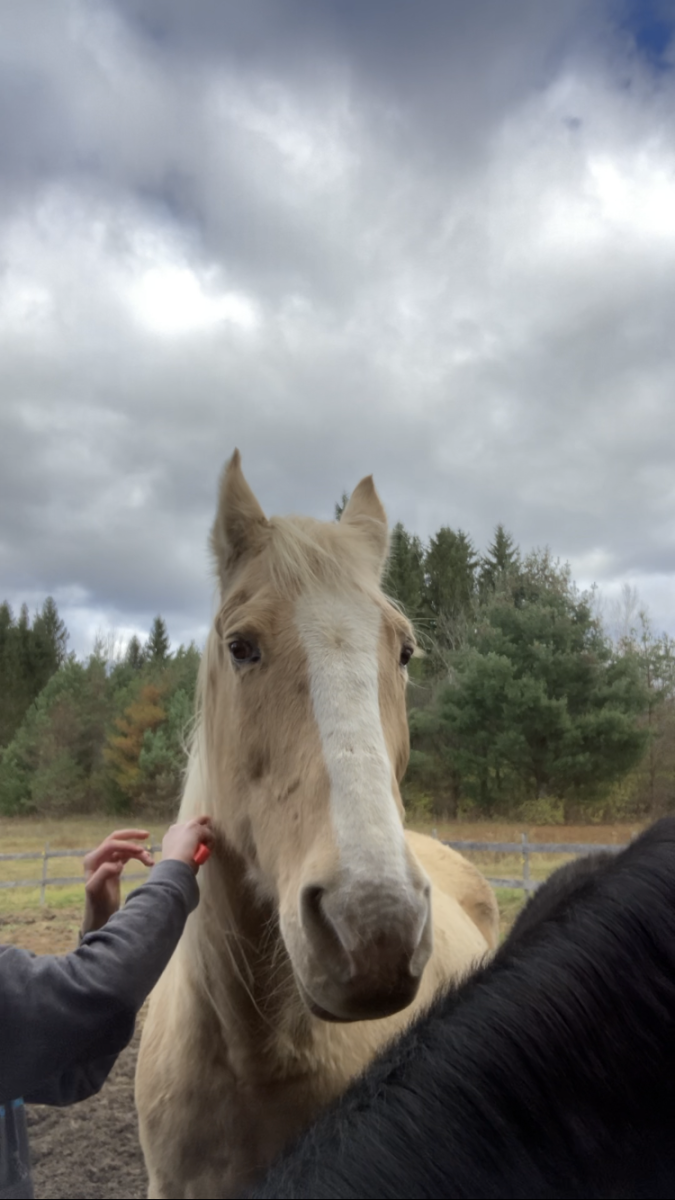When most people think of horse racing they think of happy horses racing around a nice big track, but what really goes on behind the scenes? Well I will tell you now, it’s not pretty.
Most thoroughbreds start racing at two years old, but don’t stop growing until they are 5 to 6 years old. Racing young can have a toll on the way their bones form as they grow, especially if they are being ridden daily. Most horses are started under saddle around three years old, and even then they should only be worked lightly.
Another thing that is very common in the racing industry is crops. If used correctly crops can be a very useful tool for any equestrian, but in some cases they are used for more harm than good. If you have ever seen a video of a horse race you have probably noticed the jockeys holding what looks like a stick, that is called a crop. Crops are meant to just tap the horse’s shoulder, but in this case the jockeys use the crops to hit the horses and make them to go faster. This can be very damaging to the horses emotionally and causes them to think that crops are only used for harm.
Horse racing also exposes horses to significant risk of injury including sometimes catastrophic injuries, leading to death or euthanasia. Wastage is the term for horses that are no longer racing or it never made it to the track.They are not seen as valuable anymore because they are not earning profits and are now seen as trash. Many horses who have retired from the racing industry, are seen as wastage and get slaughtered.
Horses are social animals which in the wild would have constant grazing time. Yet, race horses tend to be stalled in small isolated stalls, which can lead to stress and frustration from inability to pursue their natural behavior. This can lead to crib-biting ( repetitive behavior where the horse grasps a fixed object with its front teeth and contracts its neck muscles) which can lead to weight loss and overall poor condition another behavior they may exhibit is weaving (a repetitive behavior where the horse sways on its forelegs, shifting it’s weight back and forth).
Tongue tying is the widely used and unregulated practice of immobilizing a horse’s tongue to prevent it from getting over the bit and to prevent choking during high intensity exercise. The horses in which tongue tie is used on display clear signs of anxiety, pain and stress.
Overall, I think that horse racing should be stopped for the sake of these precious creatures. It is an abusive sport and should be ended or drastically changed.
Works Cited
Coalition for the Protection of Racehorses. horseracingkills.com/campaigns/wastage/#:~:text=’Wastage’%20is%20the%20term%20used,their%20racing%20career%20has%20ended. Accessed 6 Dec. 2023.
Dye, Josh. “Sent to Be Slaughtered: ABC Investigation Reveals Shocking Racehorse Treatment.” The Sydney Morning Herald, 17 Oct. 2019, www.smh.com.au/sport/sent-to-be-slaughtered-abc-investigation-reveals-shocking-racehorse-treatment-20191017-p531sl.html. Accessed 6 Dec. 2023.
Veterinary Partner. 11 Sept. 2023, veterinarypartner.vin.com/default.aspx?pid=19239&catId=102905&id=5242668#:~:text=Cribbing%20or%20crib%20biting%20is,without%20grabbing%20a%20fixed%20object. Accessed 6 Dec. 2023.
“What is the RSPCA’s view on the use of tongue ties in horse racing?” RSPCA Knowledgebase, The Royal society for the Prevention of cruelty to animals, 11 Oct. 2019, kb.rspca.org.au/knowledge-base/what-is-the-rspcas-view-on-the-use-of-tongue-ties-in-horse-racing/#:~:text=A%20tongue%20tie%20is%20a,place%20during%20training%20or%20racing. Accessed 5 Dec. 2023.

